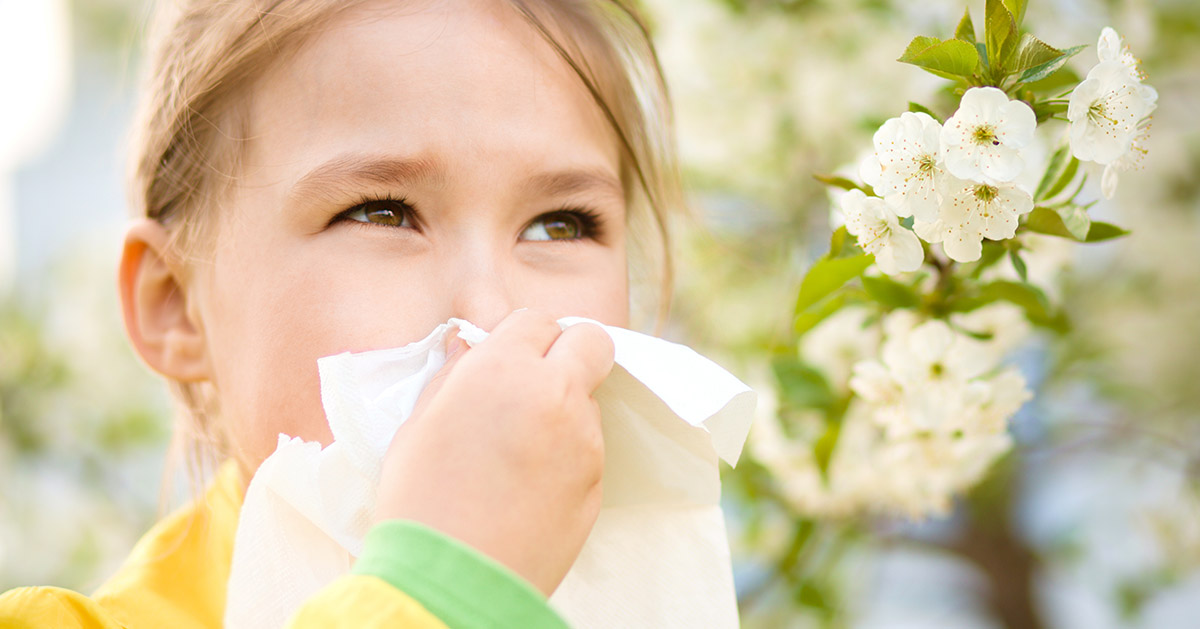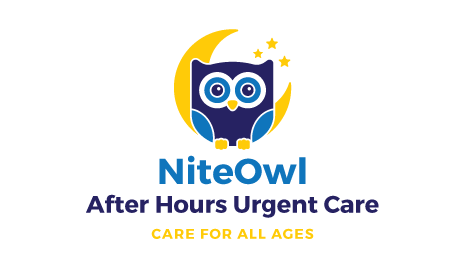Spring’s arrival means longer, warmer days for kids to get outside and enjoy playing, but the downside of this time of year is coping with seasonal allergies. You recognize the signs: sneezing, itchy eyes, sniffles without a fever. These symptoms can make anyone suffering from allergies feel downright miserable.
Parents may struggle to determine whether the reactions are the common cold or if a child has seasonal allergies. According to allergist Sandra Hong, MD, a telltale sign of allergies is rubbing the eyes and nose. Allergies may also mimic asthma symptoms when kids feel short of breath and cough a lot.
The good news is that there are a few actions parents can take to make a child with seasonal allergies more comfortable.
 1. Limit Exposure to the Outside While Inside
1. Limit Exposure to the Outside While Inside
We know it feels wonderful to open the windows and let fresh air circulate when things warm up after the long, cold winter, but you’re also letting pollen come inside and collect on surfaces, including furniture and even beds.
2. Wash Up
To keep your house pollen-free as possible, it’s not a bad idea to change clothes and watch your hands and face when heading indoors. Bathe your child before bed to reduce the potential for breathing in pollen all night.
3. Manage Time Spent Outdoors
As pediatricians, we absolutely want our patients to get outdoors and enjoy all of the recreational activities that Chattanooga offers. Staying active and getting a little bit of sun helps to encourage better health. However, we recommend that parents be thoughtful about "outside time" when a child is an allergy sufferer. Check weather channels or apps for local information about pollen counts before making plans. Dry, windy days may provoke accelerated exposure to allergens.
4. Use allergy medications as directed
Antihistamines taken by mouth, nasal sprays to relieve stuffiness, and eye drops for relief of itchy eyes can offer relief, but you should take care to follow the dosing instructions for these medications, which are often available without a prescription. Dr. Hong says parents should talk to the pediatrician about different medications and proper dosing while also monitoring if allergy medications make children feel sleepy.
5. Let your child’s doctor know if the medication does not relieve symptoms
Be proactive if a child suffers from allergy symptoms all of the time. Changing medications or altering the dosage may take care of the symptoms, but your doctor may want to check your child thoroughly to make sure there isn’t something else going on besides just common allergies.
If your child needs medical attention but cannot see his or her regular Chattanooga pediatrician, NiteOwl Pediatrics offers after-hours urgent care from our office, which has relocated to 2372 Lifestyle Way next to Great Clips. We are open 7 days a week and specialize in treating children up to 18 years of age for conditions including allergies, cold and flu.
We hope these tips help your allergy-sufferer enjoy the spring and all of the fun that longer days bring to Chattanooga area.
Photo: © Serhiy Kobyakov / 123RF Stock Photo Blog © 2019 NiteOwl Pediatrics, 2372 Lifestyle Way, Chattanooga TN
